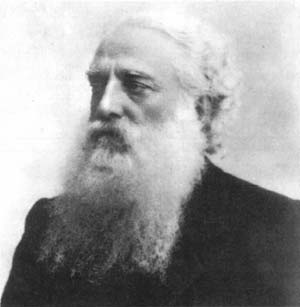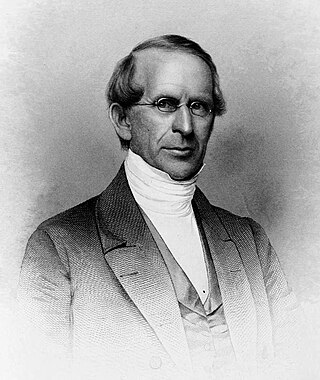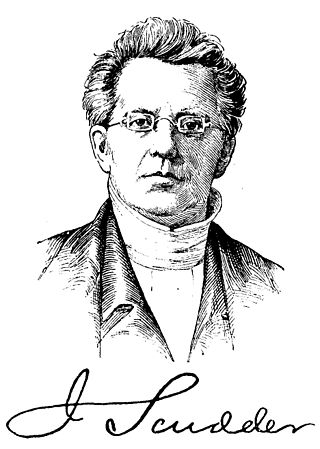Career
As a teacher
It was at this point Murdoch decided to become an educator. To this end, he began to attend classes at the University of Glasgow as well as enrolling himself in the Glasgow Normal Seminary, a school established by David Stow which devoted itself entirely to training teachers. After completing his education he obtained a position as the assistant master, later promoted to headmaster, of the English Department of the Private Seminary for children of the wealthier class where he remained until the school was closed in 1842. [1] At this time, Rev. William Fraser recommended Murdoch for appointment to the position of head-master of the Governmental Central and Normal Schools located in Kandy, Ceylon. Murdoch accepted the position and left Scotland on 13 March 1844 arriving in Ceylon on 17 August of the following year.
Once established, Murdoch poured himself into his work finding great enjoyment in it, as many of his letters home attested. [2] Yet he found himself troubled by the fact that the government of Ceylon, as a crown colony, required him to teach the Bible as part of the curriculum despite the fact that the majority of his students were practicing Buddhists, Hindus and Muslims. [3] In short, he was ill at ease being paid to teach Christian doctrine with revenues collected from these religious groups. In 1849, the Government of Ceylon, due to a bad crop of coffee, was forced to close down half of the Government Schools and drastically raise tuition in the remaining schools, resulting in a significant decline in the number of students. [4] This situation, in combination with Murdoch's unease at using government schools to teach Christianity, was enough to cause him to resign his commission as of 1 October 1849.
Missionary
Once he had resigned as head-master, Murdoch devoted himself to an occupation which had previously been a nothing more than a hobby of his: tracts writing. While being previously employed as a teacher, Murdoch had bought a printing press and some Sinhalese type, and had begun to produce Sinhalese translations of various Christian tracts. [5] Feeling the desire to continue full-time in this Christian missionary activity, Murdoch began working with the Sinhalese Tract Society writing tracts and visiting local Christian missionaries to better understand their needs. [6] He worked in Ceylon for the next five years, writing and printing tracts and visiting local missionaries. While working with the Sinhalese Tract Society, Murdoch helped to produce "a considerable stock of tracts, some 20 school books, 6 maps, and several weighty volumes of Church History, Notes on the Bible, Jame's Anxious Inquirer . . . all in Sinhalese." [7] As he traveled from one coffee plantation to the next, visiting with the English managers, he was convicted of the need to provide spiritual teaching for the Indian laborers. [8] He therefore helped to form the Tamil Cooly Mission, an endeavor which placed him in contact with John Thomas, a missionary in Tirunelveli, India. This relationship meant that Murdoch was able to extend his network of missionary connections from Ceylon to India.
It was because of these Indian missionary connections that in 1858, Murdoch was invited to become the Agent and Travelling Secretary in India for the Christian Vernacular Education Society, a position which Murdoch accepted; in 1891 the name of the society would be shortened to The Christian Literature Society (CLS). [9] The purpose of the society was primarily to provide inexpensive Christian literature for the newly literate Christians of India, [10] yet they also concerned themselves with the education of school teachers and the inspection and improvement of the indigenous schools. Despite the fact that Murdoch worked for the CLS for the remainder of his career, he did not always agree with the other members in regards to protocol. When he was initially brought in to serve as the society's Agent, he had several disagreements with his coworkers in regards to funding and the qualifications necessary for the teachers who would be employed at the various institutions associated with the CLS. [11] Despite these conflicts, Murdoch would remain with the CLS until his retirement in 1903.
Much of Murdoch's work for the society consisted of traveling throughout India inspecting various schools, and visiting with missionaries and society representatives. His travels took him outside of India, however, he made professional visits to Great Britain, the United States, various European countries and China, meeting with members of educational boards and practicing missionaries. [12] His trip to China and Japan in 1882 and then again in 1891 proved most beneficial to his work as it enabled him to network the CLS with the newly formed Christian Literature Society for China. [13] These trips also allowed him to network with powerful individuals outside of his normal sphere of influence such as Florence Nightingale, with whom he discussed issues of sanitation and health for the native population of India. She later praised his literary work, saying that his "little books are a great deal better then[ sic ] anything we could have done." [14]
In addition to his work traveling throughout India visiting various missionaries and influential figures, Murdoch was involved in the organization of several missionary conferences. The most notable conference which Murdoch played a large part in forming was the first Decennial Missionary Conference held in 1872 at Allahabad. This conference was open to all the Protestant missionary societies of India and would become a regular reoccurring event, being held every ten years. Murdoch was one of three men given the task of compiling a report on the conference, but due to unforeseen circumstances, his two coworkers were unable to help with this task and the job of compiling the report felt completely to him. [15] In addition to compiling the report, Murdoch also presented a paper on education and Christian literature. Later in his career, he also took part in the second and third Decennial Missionary Conferences as well as the first United Conference.
In 1867, the committee of the Religious Tract Society invited Murdoch to oversee their work in India in addition to his duties with the CLS, a position that Murdoch readily accepted as it enabled him to have direct access to every form of distribution of Christian literature in India. [16] It was also during that time that the University of Glasgow, in appreciation of his work in spreading Christian literature throughout India, conferred upon him the honorary degree of LL.D on 9 February 1871.
Final years
During the final years of his life, Murdoch primarily busied himself with the work which had occupied much of his previous career, that of the inspection of the various projects that the CLS were overseeing in India. [17] He also made several trips back to England with the intention of promoting the need for greater Christian literature in the various missionary ventures that were taking place during this time period. On 5 February 1903 Murdoch resigned the position of Agent and Secretary of the Madras Branch of the CLS to Henry Gulliford, desiring to spend more time producing Christian literature. [18]
In 1896 Murdoch was bestowed the silver medal of the order Kaiser-i-Hindi by the Government of India due to his service to the Indian Empire. Eight years later a gold medal of the same order was bestowed upon him yet while he learned of this honor, he did not live to receive it. John Murdoch died on 10 August 1904 after being severely weakened by an attack of pneumonia the previous month. He died peacefully in a nursing home located in Madras, India the country where he had spent the past 60 years of his life writing and traveling. [19]
Writings
As the majority of his career was spent in the development of Christian literature, Murdoch is best remembered for his own literary works. He wrote primarily for educated Indians and as English is one of the primary languages of India, he wrote in his own native tongue. When he was associated with the CLS his writings were published under authorship of the society and as such he is best known for works which he wrote and published outside of their influence.
Murdoch took issue with the Theosophical lectures of Annie Besant which he believed were misguiding Hindus. [20] He authored several books debunking the claims of the Theosophical Society, these were Theosophy Unveiled (1885), Theosophy Exposed (1893) and The Theosophic Craze (1894). He has been described as an "inveterate critic" of Theosophy. [21]
One of his most notable works is Indian Missionary Manual: Hints to Young Missionaries to India, with Lists of Books which he wrote based upon his experiences traveling around India and visiting missionaries as part of his responsibilities as agent for the CLS. In it "he even presumed (rigid bachelor as he was) to give good advice to the ladies, of course, having profited by what he learned from experienced Missionary wives beforehand." [22] He also diligently kept a journal throughout his life and various extracts of this account can be found in his bibliography as recorded in Henry Morris' The Life of John Murdoch LL.D.
One of the criticisms that has been leveled against Murdoch's literary work is that while he is correct in his assessment of the cultural situation of India, he was generally unflattering in his depiction of the Hindu faith, [23] referring to them as 'dreamy' or 'speculative', [24] in short, living in a way that was directly opposite to the busy, productive lifestyle that he himself lived and promoted.

Colonel Henry Steel Olcott was an American military officer, journalist, lawyer, Freemason and the co-founder and first president of the Theosophical Society.

Annie Besant was a British socialist, theosophist, freemason, women's rights and Home Rule activist, educationist, and campaigner for Indian nationalism. She was an ardent supporter of both Irish and Indian self-rule. She became the first female president of the Indian National Congress in 1917.
The Baptist Churches of New Zealand is a Baptist Christian denomination in New Zealand. Its headquarters are in Auckland, and it is affiliated with the Baptist World Alliance.

Anagārika Dharmapāla was a Sri Lankan Buddhist revivalist and a writer.

Rufus Anderson was an American minister who spent several decades organizing overseas missions.

Theravada Buddhism is the largest and official religion of Sri Lanka, practiced by 70.2% of the population as of 2012. Practitioners of Sri Lankan Buddhism can be found amongst the majority Sinhalese population as well as among the minority ethnic groups. Sri Lankan Buddhists share many similarities with Southeast Asian Buddhists, specifically Myanmar Buddhists and Thai Buddhists due to traditional and cultural exchange. Sri Lanka is one of five nations with a Theravada Buddhist majority.

Sundar Singh, commonly referred to as Sadhu Sundar Sing, was an Indian Christian missionary and sadhu. He is believed to have died in the foothills of the Himalayas in 1929.

Curuppumullage Jinarajadasa was a Ceylonese author, occultist, freemason and theosophist. The fourth president of the Theosophical Society, Jinarajadasa was one of the world's foremost Theosophical authors, having published more than 50 books and more than 1600 articles in periodicals during his life. His interests and writings included religion, philosophy, literature, art, science and occult chemistry. He was also a rare linguist, who had the ability to work in many European languages.

Arumuka Navalar was a Sri Lankan Shaivite Tamil language scholar and a religious reformer who was central in reviving native Hindu Tamil traditions in Sri Lanka and India.

Theosophical teachings have borrowed some concepts and terms from Buddhism. Some theosophists like Helena Blavatsky, Helena Roerich and Henry Steel Olcott also became Buddhists. Henry Steel Olcott helped shape the design of the Buddhist flag. Tibetan Buddhism was popularised in the West at first mainly by Theosophists including Evans-Wentz and Alexandra David-Neel.
Charles Henry Carter was a Baptist missionary to Ceylon. Son of Thomas Carter, a stonemason, and his wife Anne, Charles Carter was raised near Leicester, UK. While working as a miller for an uncle, Carter was converted to Christianity. He was baptised at Arnesby by the Rev M. Davis. He began preaching and immediately gaining acceptance amongst the Baptists of Leicestershire.

Patrick de Silva Kularatne was a Sri Lankan educationist and politician. He was a Member of the State Council of Ceylon (1942-1947) and Member of Parliament (1960-1965). He served as Principal of Ananda College and Dharmaraja College and established Nalanda College Colombo, Ananda Balika Vidyalaya, Moratuwa Vidyalaya and Dharmapala Vidyalaya. As a member of the executive committee on Education, he played an instrumental role in the realisation of free education from kindergarten to university.

Members of the Scudder family have worked as medical missionaries in South India.

The American Ceylon Mission (ACM) to Jaffna, Sri Lanka started with the arrival in 1813 of missionaries sponsored by the American Board of Commissioners for Foreign Missions (ABCFM). Although they had originally planned to work in Galle, the British colonial office in Ceylon restricted the Americans to out-of-the-way Jaffna due to the security concerns of the British who were warring with France at the time. The critical period of the impact of the missionaries was from the 1820s to early 20th century. During this time, they engaged in original translations from English to Tamil, printing, and publishing, establishing primary, secondary and tertiary educational institutions and providing health care for residents of the Jaffna Peninsula. These activities resulted in many social changes amongst Sri Lankan Tamils that survive even today. They also led to the attainment of a lopsided literacy level among residents in the relatively small peninsula that is cited by scholars as one of the primary factors contributing to the recently ended civil war. Many notable educational and health institutions within the Jaffna Peninsula owe their origins to the missionary activists from America. Missionaries also courted controversy by publishing negative information about local religious practices and rituals.

The Church of Ceylon is the Anglican Church in Sri Lanka. It is an extraprovincial jurisdiction of the Archbishop of Canterbury, who serves as its Metropolitan. It was established in 1845 with the appointment of the first Anglican Bishop of Colombo, James Chapman and until 1950 it consisted of a single diocese; in that year a second diocese was established at Kurunegala.

Musaeus College is a Buddhist private girls' school in Colombo, Sri Lanka. The school is named after its founding principal, Marie Musaeus Higgins from Wismar, Germany, who served as the school's principal from 1891 to 1926. Musaeus College provides primary and secondary education to more than 6,500 girls from ages 3 to 18, and is managed by a board of trustees. The school's motto is "Follow the Light".
Rev. Elwood Morris Wherry (1843–1927) was an American Presbyterian missionary to India where he spent forty years of his life. He was keenly interested in "Muslim controversy", or apologetics, making contributions to Christian-Muslim relations as an Islamic scholar and Christian ecumenist.

The introduction and early development of printing in South India is attributed to missionary propaganda and the endeavours of the British East India Company. Among the pioneers in this arena, maximum attention is claimed by the Jesuit missionaries, followed by the Protestant Fathers and Hindu Pandits. Once the immigrants realized the importance of the local language, they began to disseminate their religious teachings through that medium, in effect ushering in the vernacular print culture in India. The first Tamil booklet was printed in 1554 in Lisbon - Cartilha em lingoa Tamul e Portugues in Romanized Tamil script by Vincente de Nazareth, Jorge Carvalho and Thoma da Cruz, all from the Paravar community of Tuticorin.
Gordon Hall was one of the first two American Board of Commissioners for Foreign Missions missionaries to Bombay, then-headquarters of Bombay Presidency. He was instrumental in establishing Bombay Missionary Union, and he was the founder of the Bombay Mission or American Marathi Mission, the first American overseas mission station in the world at Bombay.
William Spence Urquhart was a Scottish religious scholar, Christian missionary and academic in India. He influenced among others one of his college students, the religious leader A. C. Bhaktivedanta Swami Prabhupada.















